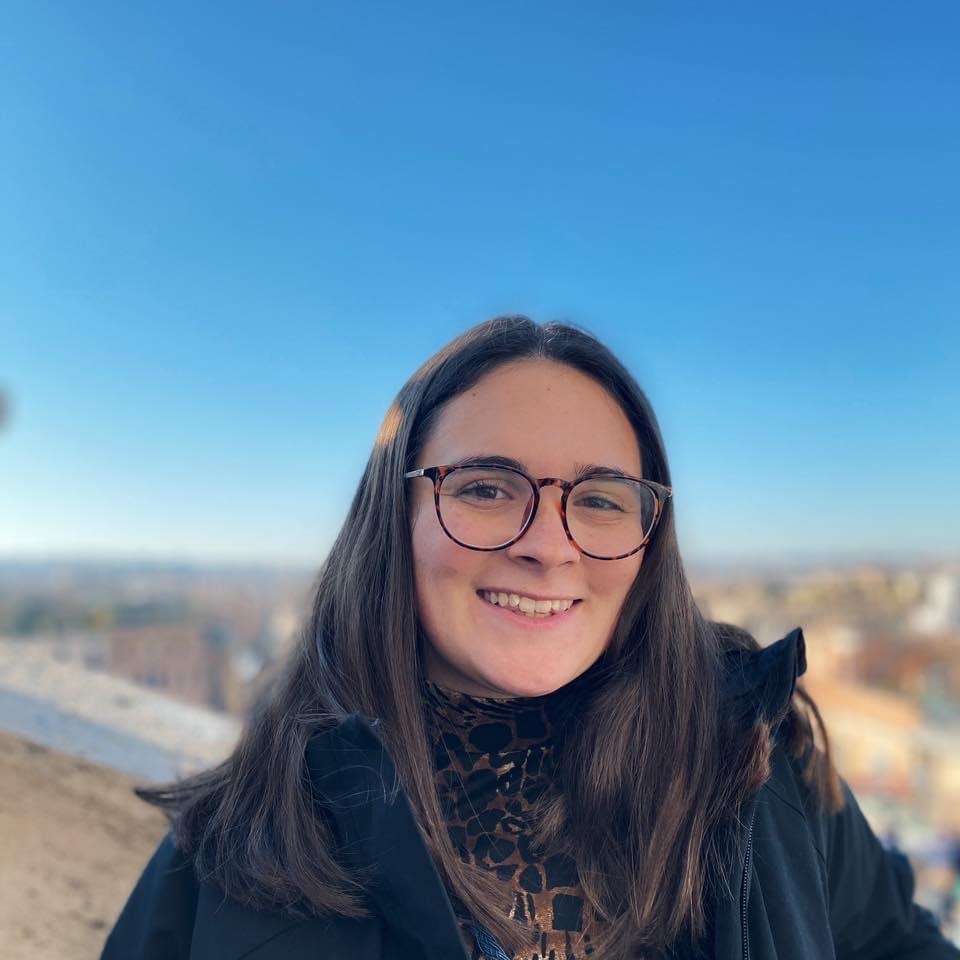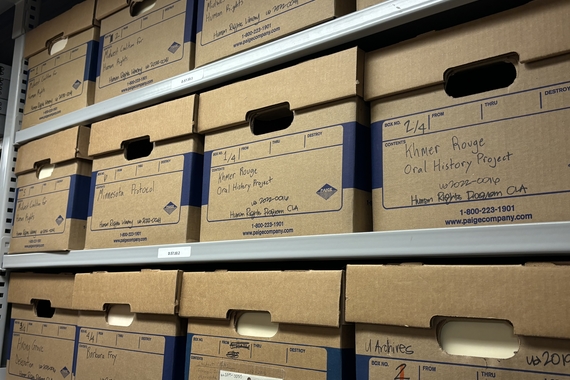HRSA Shapes New Advocates in Human Rights
The Human Rights Student Association (HRSA) was founded at the U to build a community of undergraduate human rights defenders with a mission to learn new techniques in human rights advocacy. The club works with the university and community alike to foster a sense of collective commitment to human rights work, as well as to better understand what university students can do to uplift voices of community activists. To learn more about the importance of this activism space for our undergraduate students, we spoke to the co-presidents of the club Daniela and Angela Kunkel. In this first part of the two part series, we spoke with Daniela on how she pivoted her studies to practical activism through the HRSA.
Human Rights Program (HRP): When did you decide to join HRSA? What kept you coming back?
Daniela Kunkel (DK): I decided to join HRSA at the end of my sophomore year, and I joined because I saw a gap in my learning that I wanted to supplement with the club. As a Global Studies major, I have a focus in human rights and my coursework gave me significant exposure to major players in the world of human rights as well as international human rights law and theory. However, I felt like I was missing an understanding of the very real and significant work that grassroot organizers do. I keep coming back to HRSA, because we have a wonderful opportunity to expose the UMN community to those grassroot organizers in our very own community who do this work because they are impacted by continued injustices. I believe in the fundamental idea that anyone can do human rights work and HRSA is able to highlight that work.
HRP: How do you approach your role as a co-president of HRSA?
DK: While I don’t consider myself an abolitionist yet because I can’t practice abolition to its fullest extent, I try to approach my role with that lens. What this means is prioritizing the voices of individuals that are most impacted by human rights injustices, compensating people for their time and the valuable information, and giving individual's access to our resources as privileged students studying in a university setting.
HRP: What have you gained from your time on the HRSA board?
DK: First and foremost, I have learned so much from every speaker that we have had come present to our group. I have learned so many skills around organizing events and communicating with the board and speakers. The overall biggest thing that I have gained is how to center the most impacted voices and prioritize local grassroot organizers in human rights work.
HRP: Why do you think that social justice focused, student-led organizations like HRSA are important on the UMN campus?
DK: I think they are extremely important on college campuses because, speaking for myself, I see that myself and my peers often forget the amount of privilege we have. We have access to so much information/resources, and we can offer those resources to organizers in our communities. I think it is important for students to see the tactics of community organizing in order to better ourselves for our future endeavors in the field of human rights.
HRP: What are your hopes for HRSA going forward?
DK: I hope HRSA continues to grow, and I hope it continues to show students that anyone can do human rights work. Most importantly, I hope that HRSA continues to expand its support to organizers in our community.
HRP: How do you plan on working within the realm of human rights in the future?
I want to continue to work with local organizations in Minneapolis. I have an interest in anti-racist and abolitionist teaching, so I plan on focusing my work in that sector of human rights advocacy.

You can learn more about HRSA by following them on Facebook and Instagram, or emailing hrpsab@umn.edu to sign up for the e-newsletter.
Everyone is welcome to attend all of HRSA’s events, and all undergraduates interested in getting involved in human rights work are invited to join the HRSA board.


